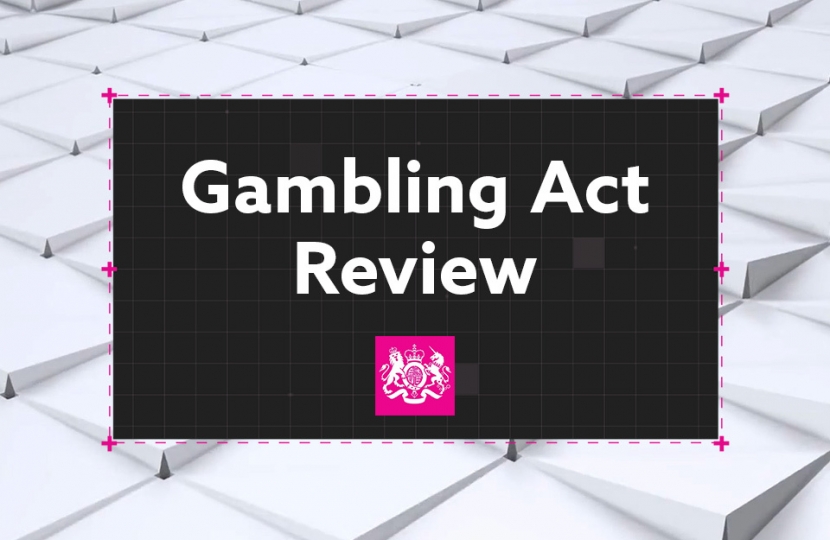
The Culture Secretary has launched a major and wide-ranging review of gambling laws to ensure they are fit for the digital age as committed to in the manifesto.
Today the government have announced a new call of evidence, to examine in detail how gambling has changed over the past 15 years.
Alongside the launch of the review, the Government is announcing its decision to raise the minimum age to play the National Lottery from 16 to 18, to protect young people.
Gambling has never been more accessible, with services available on smartphones and the government has recognised the need to reform regulation to protect vulnerable people.
As a member of the Public Accounts Committee, James has been examining the issues around problem gambling for several months. In April he led the questioning by MPs at a virtual hearing into "Gambling Regulation: Problem Gamblers and protecting vulnerable people". In June, the Public Accounts Committee published its report into gambling regulation and protecting problem gamblers. Listen to James speak about the report here.
The review will focus on issues including:
- marketing and promotions;
- online restrictions like stake and spend limits;
- the powers of the Gambling Commission;
- whether extra protections for young adults are needed; and
- what actions are available to customers who feel operators have breached social responsibility requirements, such as intervening to protect customers who are showing clear signs of problematic play, and how to ensure children are kept safe
James said, "This review of Gambling legislation was one of our manifesto commitments and it is an opportunity to update rules to protect the vulnerable. I am pleased it covers issues I have raised including how individuals can get redress when gambling operators fail to meet their social responsibility obligations, limits for online stakes, and having a properly funded and effective regulator".
The findings will inform any changes to the Gambling Act 2005 to ensure customer protection is at the heart of the regulations, while giving those that gamble safely the freedom to do so. The government recognises the need to balance the enjoyment people get from gambling with the right regulatory framework and protections.
The review of the Gambling Act 2005 will also consider the Gambling Commission’s powers and resources to ensure it can keep pace with the licensed sector and tackle the black market.
This announcement follows a range of measures recently introduced by the Government to protect consumers from the risk of gambling-related harm. These include:
- cutting the maximum stake on fixed odds betting terminals;
- tighter age and identity checks for online gambling;
- banning gambling using credit cards; and
- expanding national specialist support through the NHS Long Term Plan.
In addition, in September the Government launched a call for evidence to explore young people’s experiences of loot boxes in video games. This will provide a clearer picture of the size of the loot box market in the UK and fully examine any evidence of harms or links to problem gambling.
In October the Gambling Commission introduced new rules on VIP schemes, and has called for evidence around how to ensure operators identify and intervene where people are at risk of harm, including through carrying out affordability checks. The Commission will also soon set out new rules on safer game design for online slots and withdrawing winnings.
National Lottery
Since it began in 1994 the National Lottery’s games portfolio has changed significantly and there has been a growing trend towards online play and instant win games like scratchcards. Following a consultation, from October 2021 it will be illegal to sell all National Lottery products to under 18s.
The Government is working with the Gambling Commission and Camelot to roll out the new age limit across the National Lottery products as quickly as possible and to ensure that it is in place by October 2021 at the latest.
Under current plans, online sales to 16 and 17 year olds will stop in April 2021.

